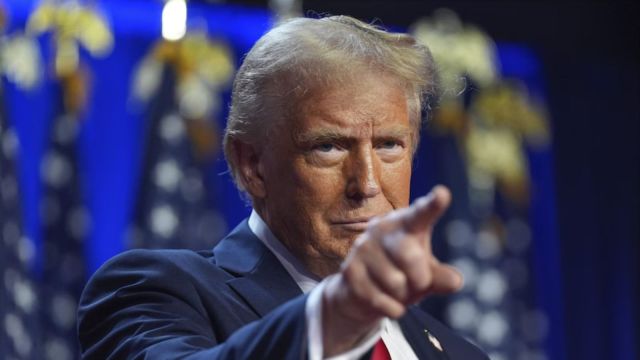
History is replete with instances of powerful states pursuing dangerous policies to acquire new territories. Such states often use coercive economic and military means to achieve their imperial objectives. Enormous costs and suffering have not deterred expansionist leaders from pursuing such goals. Consider, for instance, Napoleonic France, Nazi Germany, the Soviet expansion in Europe and Afghanistan, American interventions worldwide, and the Russian expansion in Ukraine. US President-elect Donald Trump harbours a similar ambition. Whether he would succeed in incorporating Canada and Greenland is a separate issue, but the fact that he has ardently expressed such a desire is a matter of grave concern.
Trump shocked the world with his intent to acquire Greenland, reclaim the Panama Canal and make Canada the 51st state of the US. At first glance, these statements appeared to be harmless Trumpian rhetoric to grab eyeballs. But his repeated proclamations of the same at several forums are worrying. Underlying these is a grandiose vision to create a mega-state in the Northern Hemisphere, a single entity that would dominate the world.
Hypothetically, if Canada and Greenland were acquired, the US would become the largest territorial state in the world, in control of a large part of the Arctic region, which is rich in mineral, oil and rare earth resources. The melting of ice has made the Arctic region navigable, and the Northern Sea Route connecting Europe with East Asia will cut down the distance by 30 to 40 per cent compared to the Suez Canal route. The Arctic has become a flashpoint because of these resources and navigational possibilities.
The liberal Western audience is gasping in disbelief, dismissing it as hyperbole and a delusional fantasy. However, treating it as rhetoric would be a blunder, as Trump’s team has already begun working on this vision. By invoking such a dream, Trump is tapping into nostalgia for a bygone era. His reiterations are reminiscent of the 19th-century doctrines of Manifest Destiny— the idea that “White Americans were divinely ordained to rule the entire continent of North America”. This doctrine was used to justify the violent elimination of native Americans from their homes in the guise of capitalism, civilisation and democracy. This time, the conflict is between different shades of White.
Trump’s statements, laced with threats, have alarmed Canada and Denmark. Compared to the US, they are weak states dependent on NATO (North Atlantic Treaty Organisation) for security. Therefore, they are cautious and mild in responding to Trump’s outrageous remarks. For instance, Canadian Prime Minister Justin Trudeau said there is not “a snowball’s chance in hell” for the two to join. Canada fears Trump imposing high tariffs — trade between the two countries stood at $908.9 billion, and the US has a trade deficit of $53.5 billion in 2022. Trump intends to exploit Canada’s trade and security dependence on the US. He wants Canada to surrender its sovereignty. However, Canada is unlikely to make any such decision given the anti-US sentiment prevalent there. More than Canada, Greenland is in real trouble.
With a population of just 56,699 people, Greenland is a semi-autonomous territory of Denmark. It was never controlled by the US, except during World War II. The US has its military base in Greenland, and Denmark is a member of NATO. Therefore, one wonders what prompted Trump to think of acquiring Greenland. More than security, it is his ambition to expand the frontier of the US. As a real estate tycoon, he must be fascinated with new territories for investment. Further, he is supported by tech-billionaire Elon Musk, who dreams of colonising Mars. Together, they ended up coveting the territory of a European ally.
As expected, Danish Prime Minister Mette Frederiksen hit back, saying, “Greenland is not for sale and will not be in the future either.” But such statements are unlikely to deter Trump, who can employ coercive diplomacy to achieve his objective. His son, Donald Trump Jr, visited the island with his father’s key advisors. There are speculations that Trump might take advantage of tense relations between Greenland’s government and the Danish government.
At the global level, Trump’s statement on Greenland will have far-reaching consequences. It disregards the UN Charter, where territorial integrity and sovereignty are treated as sacrosanct for big and small states alike. Second, the big powers can use this logic to justify their acts of aggression. For instance, Russia will justify its act in Ukraine, China in Taiwan, and Israel and Turkey in Syria. Third, it strikes a heavy blow to NATO as its most potent member covets the territory of another member. Fourth, Europe is the biggest loser because it has long outsourced its security to America. It has never appeared more vulnerable— caught between America’s greed and Russia’s threat. Finally, New Delhi will likely treat this issue as a Euro-Atlantic affair and maintain a studied silence. It may not want to antagonise Trump at this stage, but it will not support him in his imperial ambitions either.
The writer teaches at the School of International Studies, Jawaharlal Nehru University, Delhi